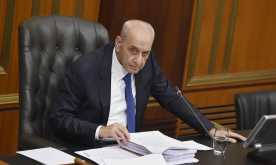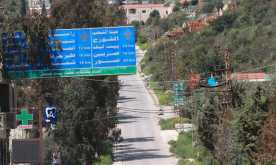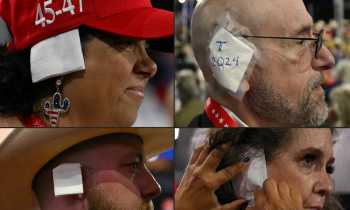

:Destroying the Lebanese Economy
Multiple Exchange Rates, Haircuts, Capital Controls
Dr. Saleh M. Nsouli, Former Director, International Monetary Fund
and
Dr. Mounir Rached, President, Lebanese Economic Association
What is happening in Lebanon is not normal. It is incomprehensible that, over two years and two successive Governments since the start of one of the worst economic and financial crises in history brought about by mismanagement and corruption, not only no corrective action has been taken, but counterproductive measures have been instituted that have amplified the crisis.
As a result, the Lebanese economy has thus been effectively decimated. The value of the Lebanese pound has plummeted, economic activity has suffered, unemployment has skyrocketed, inflation has soared, real incomes have shrunk drastically, electricity supply has become even more sporadic, widespread shortages of basic goods, fuel, and medicines have become prevalent, the brain drain has been alarming, the percentage of the population living below the poverty line is estimated to have doubled, and Lebanon’s foreign exchange reserves have dropped by over US$20 billion in just the last two years.
This loss of reserves is several times more than Lebanon can expect to receive over the next four years from international institutions and donors if it were to put in place today the most comprehensive and rigorous adjustment and structural reform program to redress the situation.
The Lebanese economy had prospered for many years since independence in 1943 and weathered well numerous economic, political, and regional and international shocks: (1) by being one of the first countries in the world to adopt a unified market determined floating exchange system, (2) by establishing a confidence inspiring banking system, and (3) by maintaining free trade and capital account regimes.
These three pillars will be an essential lynchpin in Lebanon’s recovery, as key elements of comprehensive macroeconomic and structural reforms. However, the counterproductive measures instituted since the start of the crisis and recent policy proposals have and are destroying these primordial foundations, which could have durable long lasting deleterious effects and potentially foster civil strife
1. The destruction of the exchange rate:
The floating market determined exchange rate was abandoned in 1997 and replaced by an overvalued fixed rate of about LL 1,500 per US dollar. To sustain this, a high interest rate policy was adopted designed to attract foreign exchange deposits which in turn were used to finance the external sector imbalances, which were increasingly aggravated by large budget deficits financed by treasury borrowing. The rising Government debt and external imbalances led to a loss of foreign exchange, an erosion of confidence, and a subsequent drop in capital inflows and a rise in capital outflows resulting in the rapid collapse of the fixed exchange rate and the emergence of a parallel foreign exchange market.
Instead of taking corrective action, the Central Bank resorted to the arbitrary introduction of multiple fixed exchange rates even as the parallel exchange rate plummeted, erasing over 90 percent of the value of the Lebanese pound. The multiplicity of rates led to widespread speculation, smuggling, shortages, hyperinflation, and a further erosion of confidence.
2. The destruction of the banking system:
The banking system was at the center of the crisis through what has become known as “financial engineering” or a “Ponzi scheme”. Since 1997, the Government, BDL, and the commercial banks engineered a high interest rate policy that discarded all sense of prudential regulations. The banks concentrated their domestic assets in high interest earning Government bills and their foreign exchange assets in high interest earning deposits at the BDL, ignoring any prudent principle of portfolio diversification.
This enabled the banks to pay relatively high interest to their customers, while earning even higher interest on the Government bills and BDL deposits — thereby reaping high profits and diverting resources away from their intermediation role in promoting domestic investment and growth while jeopardizing the deposits of their customers. At the same time, the high interest rates led to widening Government deficits in addition to rising quasi-fiscal losses at the BDL.
When the Government’s high debt burden and the widening external imbalances led to a loss of confidence, the drop in foreign capital inflows and a surge in capital outflows started depleting the BDL’s foreign exchange reserves, which relied heavily on the banks’ foreign exchange deposits. The subsequent introduction of haphazard constraints on depositors accounts, which continues till today, and the hyperinflation have already imposed implicit but real “haircuts” on depositors and eroded any remaining confidence in the banking system.
Instead of having the Government, the BDL, and banks bear their responsibility for the losses resulting from the “Ponzi scheme” they engaged in, the complete destruction of the banking system is now being engineered by having the depositors bear the bulk of the burden of the losses through the recently proposed “haircuts”, either explicit or implicit through outright cuts, the blockage of deposits over many years, and the conversion of dollar deposits into LL at multiple unfavorable rates. This will be the nail in the coffin of the moribund banking system as no one will once again trust it with hard earned cash.
3. The destruction of the capital account:
The proposed capital controls law is ill conceived. It is a peculiar mixture of limits on bank deposit withdrawals and controls on capital outflows as well as on some current account transactions, with discretion given to a committee some members of which do not enjoy confidence.
In general, capital controls on capital outflows are not a solution, do not work, and have high costs. Economic research has shown that capital controls on outflows contribute to a reduction in fiscal and monetary discipline, result in distortions that adversely affect growth and employment, discourage investment, raise the costs of financing, deter capital inflows, do not effectively control outflows, give rise to a parallel market with a more depreciated rate, and foster corruption. The proposed capital controls law will only aggravate an already difficult situation.
***********
Instead of destroying the three major pillars of the Lebanese economy by attempting to further manipulate the exchange rate, to impose “haircuts” on depositors that will durably undermine the banking system, and to control deposits, current account transactions, and capital flows, the Government should focus on elaborating and implementing a meaningful comprehensive macroeconomic adjustment and structural reform program that will inspire confidence, restore financial stability, address the structural bottlenecks, improve governance and transparency, and ensure a sustainable recovery. But it can only be meaningfully elaborated on the basis of a transparent independent audit of the banking system, not on hypothetical numbers.
Such a program should be based on safeguarding these three pillars — a unified floating market-determined exchange rate, a confidence inspiring banking system, and a free trade and capital account system — that had served the country so well. The floating unified exchange rate will settle at an equilibrium that will prevent distortions and the loss of reserves, the banking system will be able to safeguard deposits and meet withdrawal demands in domestic currency at the unified exchange rate, and the resurgence of confidence reflecting credible reforms will obviate the need for detrimental capital controls.
In this context, the support of the International Monetary Fund and the World Bank will be helpful in restoring both domestic and international credibility as well as in mobilizing the requisite financial assistance.
The Government has the obligation to urgently interact responsibly and in full transparency with these two institutions to ensure that such a comprehensive program reflects the realities on the ground and meets the aspirations of the Lebanese people. Over the last two years, this unfortunately has not been the case.
Lebanon is at the edge of a cliff. It is time to save Lebanon.












